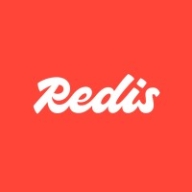

Find out in this report how the two Message Queue (MQ) Software solutions compare in terms of features, pricing, service and support, easy of deployment, and ROI.
Using Amazon SQS has led to increased productivity and reduced man-hour costs.
They meet their tasks effectively.
Amazon SQS is highly scalable, automatically managing itself based on the load.
I can easily scale up or down with Amazon SQS without any issues.
Data migration and changes to application-side configurations are challenging due to the lack of automatic migration tools in a non-clustered legacy system.
With Amazon SQS, such maintenance is not needed, making it more reliable and secure.
The stability of Amazon SQS is very good, as I find it to be very stable.
Redis is fairly stable.
It would be beneficial if there was a provision to configure and retain messages for longer than a week.
Data persistence and recovery face issues with compatibility across major versions, making upgrades possible but downgrades not active.
On a scale of one to ten, where one is very cheap, I would rate the pricing as one.
Since we use an open-source version of Redis, we do not experience any setup costs or licensing expenses.
If there's a failure in the system after consuming a message, SQS's settings ensure the message is not deleted until confirmation.
If we compare with other solutions such as RabbitMQ for messaging, Amazon SQS is easier to use and easier to create the queue.
It functions similarly to a foundational building block in a larger system, enabling native integration and high functionality in core data processes.
| Company Size | Count |
|---|---|
| Small Business | 13 |
| Midsize Enterprise | 4 |
| Large Enterprise | 14 |
| Company Size | Count |
|---|---|
| Small Business | 11 |
| Midsize Enterprise | 3 |
| Large Enterprise | 8 |
Amazon Simple Queue Service (SQS) is a fully managed message queuing service that enables you to decouple and scale microservices, distributed systems, and serverless applications. SQS eliminates the complexity and overhead associated with managing and operating message oriented middleware, and empowers developers to focus on differentiating work. Using SQS, you can send, store, and receive messages between software components at any volume, without losing messages or requiring other services to be available. Get started with SQS in minutes using the AWS console, Command Line Interface or SDK of your choice, and three simple commands.
SQS offers two types of message queues. Standard queues offer maximum throughput, best-effort ordering, and at-least-once delivery. SQS FIFO queues are designed to guarantee that messages are processed exactly once, in the exact order that they are sent.
Redis offers high-speed, in-memory storage, renowned for real-time performance. It supports quick data retrieval and is used commonly in applications like analytics and gaming.
Renowned for real-time performance, Redis delivers high-speed in-memory storage, making it a favorite for applications needing quick data retrieval. Its diverse data structures and caching capabilities support a broad array of use cases, including analytics and gaming. Redis ensures robust scalability with master-slave replication and clustering, while its publish/subscribe pattern renders it reliable for event-driven applications. The solution integrates smoothly with existing systems, minimizing performance tuning needs. Although documentation on scalability and security could be improved, Redis remains cost-effective and stable, commonly utilized in cloud environments. Enhancing integration with cloud services like AWS and Google Cloud and refining GUI may improve usability.
What are the key features of Redis?Redis finds application across industries for tasks like caching to improve application performance and speed, minimizing database load. It enables real-time processing for session storage, push notifications, and analytics. As a messaging platform, Redis handles high traffic and supports replication and clustering for cross-platform scalability.
We monitor all Message Queue (MQ) Software reviews to prevent fraudulent reviews and keep review quality high. We do not post reviews by company employees or direct competitors. We validate each review for authenticity via cross-reference with LinkedIn, and personal follow-up with the reviewer when necessary.